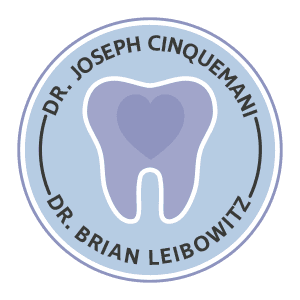Emergency Dentistry
Emergency Dentistry
We offer comprehensive dental services to address common issues like:
- Toothaches
- Broken or chipped teeth
- Knocked Out Teeth
- Loss of Fillings and Crowns
- Abscesses and Infections
Our team of experienced professionals provides expert diagnosis and treatment to ensure that you receive the best care and relief when you are in need. Call us right away for effective and compassionate emergency dental services that will restore your comfort and smile.
Don't wait in pain. Call us now at (631) 467 4440 for immediate assistance and get back to smiling comfortably.
Emergency Dentistry
We offer comprehensive dental services to address common issues like:
- Toothaches
- Broken or chipped teeth
- Knocked Out Teeth
- Loss of Fillings and Crowns
- Abscesses and Infections
Our team of experienced professionals provides expert diagnosis and treatment to ensure that you receive the best care and relief when you are in need. Call us right away for effective and compassionate emergency dental services that will restore your comfort and smile.
Don't wait in pain. Call us now at (631) 467 4440 for immediate assistance and get back to smiling comfortably.

Digital X-Rays
Comprehensive Exams
The best way to ensure your smile stays healthy and beautiful is to catch potential health issues as soon as possible. Our comprehensive dental exams are designed to do exactly that. Our expert team will inspect your full mouth to detect early signs of trouble. We can catch issues like cavities, gum disease, and oral cancer
fast to protect your smile from long-term damage.
Advanced Diagnostic X-Rays
We use advanced diagnostic imaging and X-rays to get the complete picture of your oral health. With our tools, we can find hidden oral health issues such as impacted teeth, bone loss, and decay. If there is anything negatively impacting your oral health, we will find it and take care of it so you can keep smiling.

Digital X-Rays
Comprehensive Exams
The best way to ensure your smile stays healthy and beautiful is to catch potential health issues as soon as possible. Our comprehensive dental exams are designed to do exactly that. Our expert team will inspect your full mouth to detect early signs of trouble. We can catch issues like cavities, gum disease, and oral cancer
fast to protect your smile from long-term damage.
Advanced Diagnostic X-Rays
We use advanced diagnostic imaging and X-rays to get the complete picture of your oral health. With our tools, we can find hidden oral health issues such as impacted teeth, bone loss, and decay. If there is anything negatively impacting your oral health, we will find it and take care of it so you can keep smiling.

Root Canal Therapy
A root canal is a common procedure that can save your tooth after it has been injured or developed an infection. To understand how it works, you need to know the basic structure of your tooth:
- The root of your tooth is the part that is burrowed deep in your gums. Some of your teeth have only one root while others (like your molars) have multiple roots. These roots extend down to your jawbone and help keep your tooth in place throughout your life.
- The root canal is located in each root. This canal holds pulp (blood vessels, tissue, and nerves) that helps your tooth stay healthy. The pulp in your teeth is how you can feel pressure and temperature with your teeth.
What is a Root Canal Procedure?
If the pulp in your tooth has gotten infected or been injured, you will need a root canal procedure to take
The basic steps of a root canal
- We will apply a local anesthetic to keep you comfortable during your treatment
- Our dentist will drill a small hole in your tooth to access the root canal
- Then we will remove the infected or damaged pulp and clean out the canal
- If needed, we will apply a special antibiotic to handle any remaining infection
- Our dentist will then seal the canal with a sterile material
Common Signs of an infected tooth
- Severe toothache
- Tooth discoloration
- Sudden sensitivity to temperature
- Swollen, tender, or inflamed gums
- Loose adult tooth
If you are experiencing any of the above symptoms, call us right away to schedule an appointment.
Root Canal Therapy
A root canal is a common procedure that can save your tooth after it has been injured or developed an infection. To understand how it works, you need to know the basic structure of your tooth:
- The root of your tooth is the part that is burrowed deep in your gums. Some of your teeth have only one root while others (like your molars) have multiple roots. These roots extend down to your jawbone and help keep your tooth in place throughout your life.
- The root canal is located in each root. This canal holds pulp (blood vessels, tissue, and nerves) that helps your tooth stay healthy. The pulp in your teeth is how you can feel pressure and temperature with your teeth.
What is a Root Canal Procedure?
If the pulp in your tooth has gotten infected or been injured, you will need a root canal procedure to take
The basic steps of a root canal
- We will apply a local anesthetic to keep you comfortable during your treatment
- Our dentist will drill a small hole in your tooth to access the root canal
- Then we will remove the infected or damaged pulp and clean out the canal
- If needed, we will apply a special antibiotic to handle any remaining infection
- Our dentist will then seal the canal with a sterile material
Common Signs of an infected tooth
- Severe toothache
- Tooth discoloration
- Sudden sensitivity to temperature
- Swollen, tender, or inflamed gums
- Loose adult tooth
If you are experiencing any of the above symptoms, call us right away to schedule an appointment.

Root Canal Therapy
A root canal is a common procedure that can save your tooth after it has been injured or developed an infection. To understand how it works, you need to know the basic structure of your tooth:
- The root of your tooth is the part that is burrowed deep in your gums. Some of your teeth have only one root while others (like your molars) have multiple roots. These roots extend down to your jawbone and help keep your tooth in place throughout your life.
- The root canal is located in each root. This canal holds pulp (blood vessels, tissue, and nerves) that helps your tooth stay healthy. The pulp in your teeth is how you can feel pressure and temperature with your teeth.
What is a Root Canal Procedure?
If the pulp in your tooth has gotten infected or been injured, you will need a root canal procedure to take
The basic steps of a root canal
- We will apply a local anesthetic to keep you comfortable during your treatment
- Our dentist will drill a small hole in your tooth to access the root canal
- Then we will remove the infected or damaged pulp and clean out the canal
- If needed, we will apply a special antibiotic to handle any remaining infection
- Our dentist will then seal the canal with a sterile material
Common Signs of an infected tooth
- Severe toothache
- Tooth discoloration
- Sudden sensitivity to temperature
- Swollen, tender, or inflamed gums
- Loose adult tooth
If you are experiencing any of the above symptoms, call us right away to schedule an appointment.
Contact Us
Contact Us
We will get back to you as soon as possible
Please try again later

